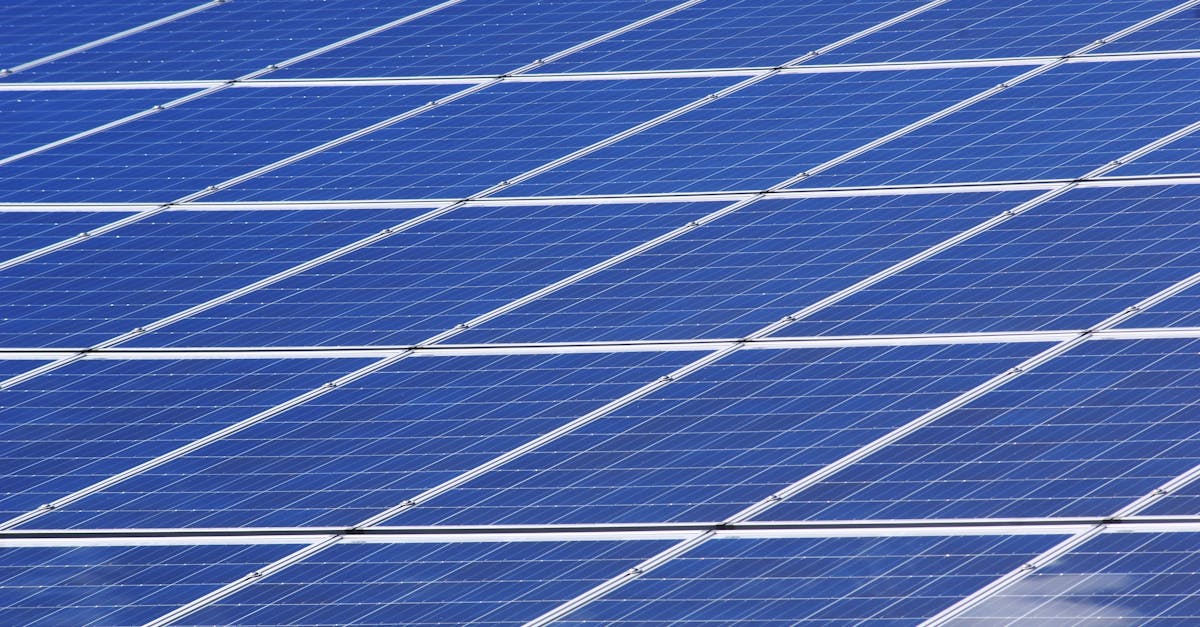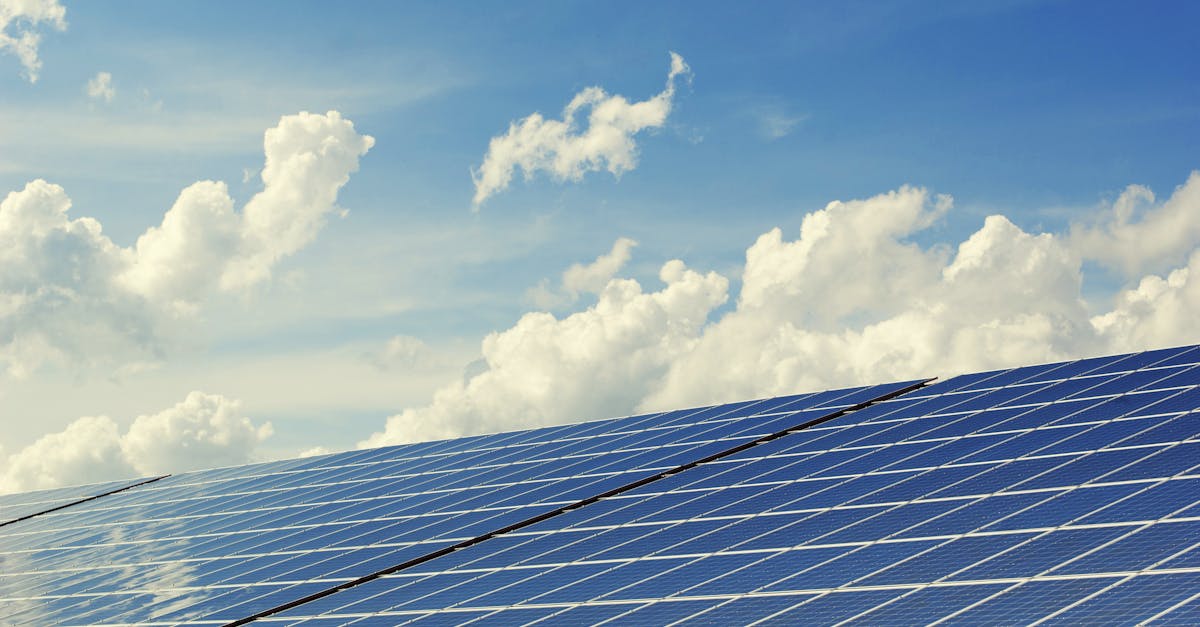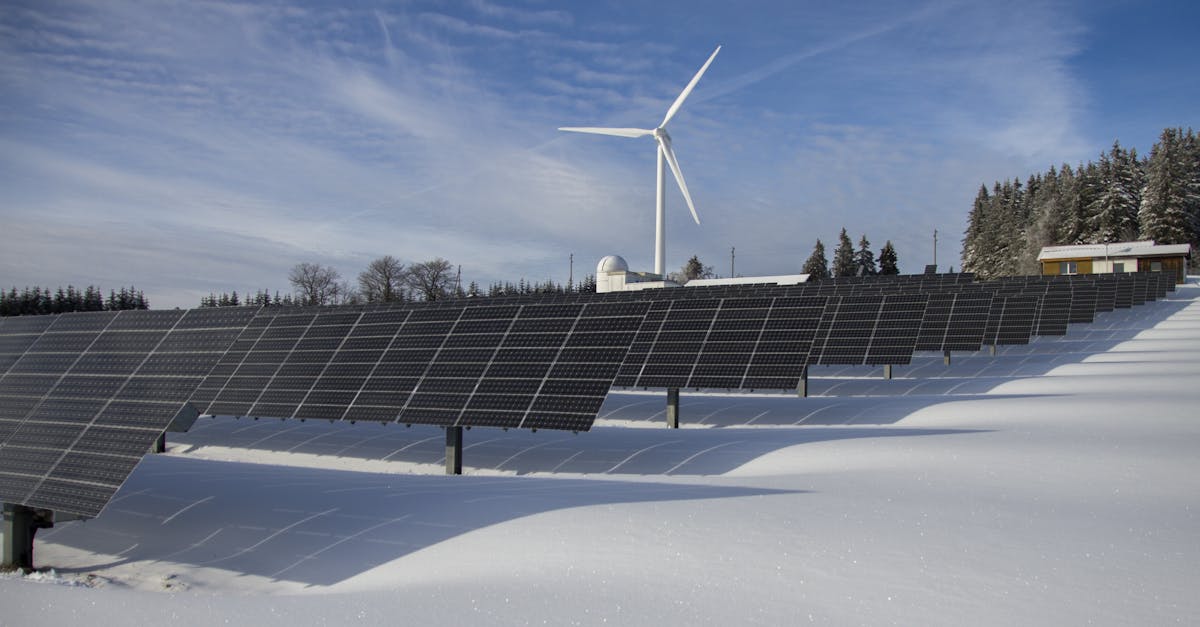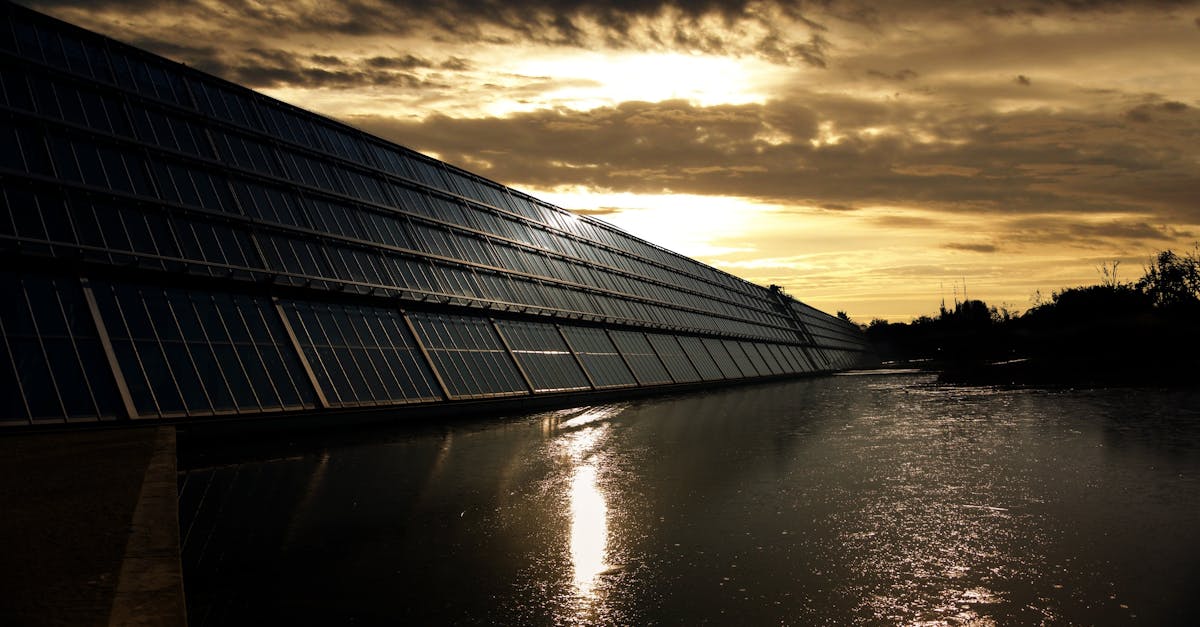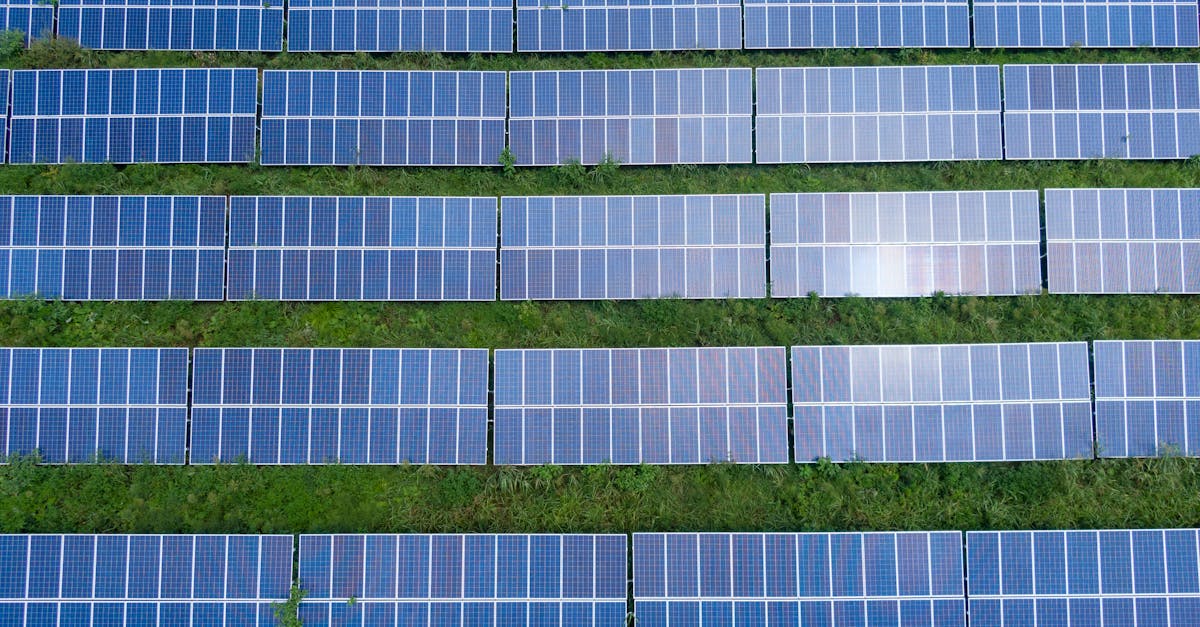
Table Of Contents
Installation Process
Solar panel installation in the UK generally begins with an assessment of your property to ensure its suitability for solar energy. This involves analysing roof orientation, angle, and shading from nearby trees or buildings. Once this evaluation is completed, the chosen installer will guide you through the necessary permits and paperwork required for installation. Understanding the regulations and available incentives can smooth the process and contribute to a more efficient setup.
Following this initial assessment, the actual installation process typically takes one to three days. This phase includes mounting the solar panels, connecting the wiring, and integrating the system with your electrical supply. Professional installers will ensure that everything complies with local regulations and standards. Quality installation is crucial not just for immediate performance but also for the longevity and efficiency of the system.
Choosing the Right Installer
Selecting a skilled and reputable installer for solar panel installation is critical to ensuring the system functions efficiently and safely. Begin by researching local companies that specialise in solar technology. Look for those accredited by recognised bodies such as the Microgeneration Certification Scheme (MCS), as this certification indicates adherence to industry standards. Reviews and testimonials can offer insight into customer satisfaction and the quality of work. Always request quotes from multiple installers to compare prices and services, which helps in making an informed choice.
Once potential installers are identified, schedule consultations to discuss your needs and expectations. This is a suitable opportunity to ask about their previous projects and expertise in solar panel installation. Evaluate their understanding of your specific requirements and how well they communicate essential information. Transparent installers will provide comprehensive details about the installation process, including timelines and warranties, which reflects their professionalism and reliability.
Maintenance Requirements
Regular maintenance of solar panels ensures their efficiency and longevity. After solar panel installation, it is crucial to check for any dirt, dust, or debris that may accumulate on the surface. This build-up can significantly reduce the panels' ability to absorb sunlight. Ideally, the panels should be cleaned at least once a year, although this may vary depending on local environmental factors. In regions with heavy rainfall, fewer cleanings may be necessary, whereas areas with more dust or pollution may require more frequent attention.
Additionally, it is important to monitor the system's performance through the inverter display or a dedicated app. This allows homeowners to identify any drops in energy production that could indicate a malfunction or need for repair. Professional inspections are beneficial, ideally every few years, to ensure all components function correctly. Proper maintenance not only maximises energy output but also helps to prolong the lifespan of the solar panel system, safeguarding the investment made during solar panel installation.
Keeping Solar Panels in Optimal Condition
To ensure solar panels remain in optimal condition, regular inspections are essential. This process includes checking for dirt or debris accumulation, which can significantly affect their efficiency. It is advisable to schedule these inspections at least once or twice a year. During these assessments, any issues such as damaged panels or faulty wiring should be promptly addressed to prevent larger problems down the line.
In addition to routine checks, it's important to keep an eye on the system's performance. Monitoring the energy output can help identify any unexpected drop in efficiency, which may indicate a need for maintenance. Proper upkeep not only prolongs the lifespan of the solar panels but also maximises the benefits of your Solar Panel Installation, providing consistent energy savings.
Choosing the Right Type of Solar Panel
Selecting the appropriate type of solar panel is crucial for maximising energy efficiency and savings. Monocrystalline panels are known for their high efficiency and sleek design. They are made from a single crystal structure, allowing them to generate more electricity in limited space. This can be particularly beneficial for urban settings where roof space might be at a premium. On the other hand, polycrystalline panels tend to be more cost-effective and are easier to manufacture, although they usually offer lower efficiency compared to their monocrystalline counterparts.
When considering the type of solar panel during the Solar Panel Installation process, it’s essential to assess personal energy needs and budget constraints. Polycrystalline panels may appeal to those looking for affordable options and extensive roof space. Alternatively, those willing to invest more upfront might opt for monocrystalline panels, benefiting from their longevity and performance. Evaluating these factors can lead to a more informed decision, catering to both financial considerations and energy requirements.
Comparing Monocrystalline and Polycrystalline
When considering solar panel installation, the choice between monocrystalline and polycrystalline panels plays a crucial role in overall efficiency and performance. Monocrystalline panels are known for their higher efficiency rates, often exceeding 20%. This efficiency is attributed to their construction process, which involves a single crystal structure that allows for better energy absorption. Additionally, these panels typically occupy less space, making them suitable for installations with limited roof area.
Polycrystalline panels, on the other hand, are generally more affordable and easier to manufacture. Their production involves melting multiple silicon crystals, resulting in a less efficient energy conversion than their monocrystalline counterparts. However, they tend to perform better in high temperatures, making them an appealing option for certain climates. Ultimately, the decision should be influenced by budget constraints and specific energy needs, as both types offer distinct advantages for solar panel installation.
FAQS
How much do solar panels cost to install in the UK?
The cost of installing solar panels in the UK can vary significantly based on factors such as the size of the system, the type of panels chosen, and any additional installation costs. On average, homeowners can expect to pay between £4,000 and £8,000 for a typical domestic solar panel system.
What are the financial benefits of installing solar panels?
Installing solar panels can lead to substantial savings on electricity bills, as they allow homeowners to generate their own energy. Additionally, there may be government incentives, such as the Smart Export Guarantee (SEG), which pays homeowners for surplus energy they feed back into the grid.
Do solar panels require much maintenance?
Solar panels are generally low-maintenance. While they should be kept clean and free of debris to ensure optimal performance, most systems only require occasional inspections and cleaning. Many manufacturers also offer warranties that cover maintenance issues for several years.
How long do solar panels last?
The lifespan of solar panels is typically around 25 to 30 years, although many systems continue to operate beyond this timeframe at reduced efficiency. Most manufacturers provide warranties that guarantee performance for a specified number of years.
Can I install solar panels myself, or should I hire a professional?
While it is technically possible to install solar panels yourself, it is highly recommended to hire a professional installer. A qualified installer will ensure that the system is correctly mounted, connected, and compliant with local regulations, optimising both performance and safety.

